Why Autoimmunity Is Keeping You Sick And How To Reverse It
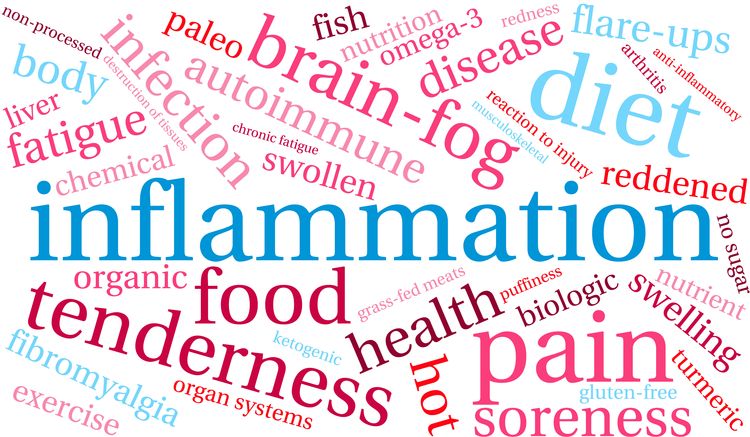
Do you feel fatigued even after you get a full night of sleep? Do you have achy muscles and joints, brain fog, an inability to concentrate, or insomnia? Do you get rashes, eczema, hives, or skin irritation? Do you have a hard time tolerating cold or heat? Do you get diarrhea, bloating, constipation, or stomach pain?
If you answered “yes” to several of these, there’s a good chance you have an autoimmune condition. Many people suffer for years with a vague set of symptoms that look like many other conditions but can’t be clearly defined or put in a box. Today we know this previous gray area actually defines the symptoms that precede or are involved in the process of autoimmunity.
This inflammation-based condition is a hot topic receiving lots of press right now in the health world, especially in holistic functional medicine and natural medicine spaces. This is partially because some AI conditions are now easier to diagnose, but much is due to the fact that we now understand the role of the gut and root causes as mediators of autoimmunity, not just a breakdown of immune function. This is a message practitioners, patients, and researchers want to get out, as autoimmune diseases are so prevalent—they affect at least 50 million Americans.1
Until recently, it was standard thinking that AI couldn’t be reversed, but now we know differently. Identifying the root causes and reversing intestinal hyperpermeability (leaky gut) are at the core of reversing the autoimmune process in the body. Doing this, combined with some diet and lifestyle changes, could have you healing and feeling like an elevated version of yourself.
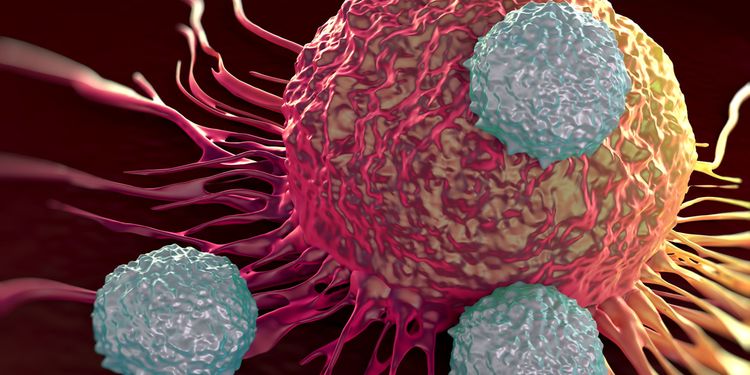
What Exactly is Autoimmunity?
Autoimmunity, at its core, occurs when the immune system attacks healthy tissues that it’s mistaken as a foreign invader.
Previously, science believed that it was purely immune dysfunction or an overactive immune system that caused autoimmune conditions. Knowledge has advanced now, and we know that there are lifestyle triggers that lie at the heart of immune system dysfunction. These triggers, combined with genetics and epigenetics (the environmental influence turning genes on or off) are what regulate the AI process.
There are more than 90 diagnosable autoimmune conditions today.2,6 Some of the more common conditions are ankylosing spondylitis, Addison’s disease, Celiac disease, Crohn’s disease, Graves’ disease, Hashimoto’s thyroiditis, Lupus (systemic lupus erythematosus or SLE), myasthenia gravis, multiple sclerosis, psoriasis, rheumatoid arthritis, Sjogren’s disease, ulcerative colitis, and Type I diabetes, as well as allergies, asthma, dermatitis, and eczema.
This is only a short list of the conditions that have been described and categorized. In reality, you can have an autoimmune assault on any tissue in your body, and that process may not yet be defined, which can make diagnosis frustrating for you.
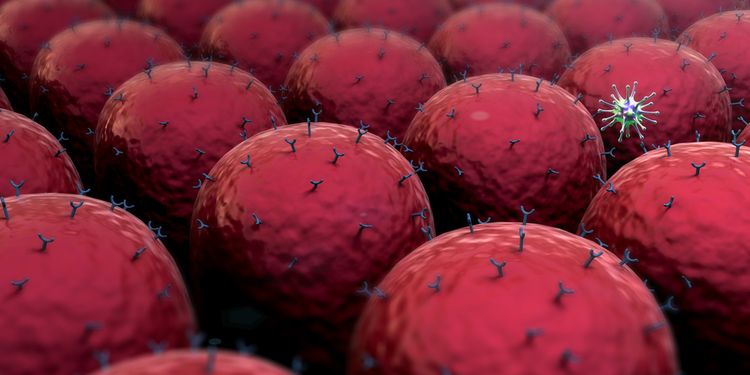
Even though there are many different types of AI conditions that are on a vast spectrum, they share one thing in common—that they’re all inflammatory in nature.
Chronic systemic inflammation sets the stage for an upregulated immune system that causes the body to attack itself.
The good news is that getting to the bottom of the root causes and making lifestyle changes can have a profound impact on the course of the autoimmune process, meaning that an AI disease doesn’t necessarily have to be defined to start reversing the process and healing.
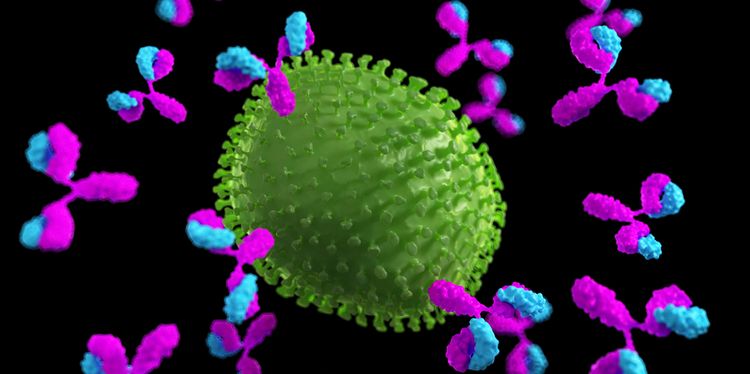
How Does Autoimmunity Occur?
Dr. Amy Myers, MD, explains, “Autoimmune diseases are born when your body is working hard to defend itself against something potentially dangerous, such as an allergen, a toxin, an infection, or even a food, and it fails to differentiate between the intruder and parts of your own body. Mistaking certain types of tissues for harmful substances, your body turns these antibodies against itself, wreaking havoc on your organs.”1
The origin of autoimmune conditions is multifactorial and additive, in that it takes a genetically predisposed person in the right environmental circumstances with a leaky gut to develop an improper immune response. Family history accounts for one-third of the risk for developing an AI condition, as certain genes have been identified that directly affect the immune system and play a role in its hyperreactivity.14
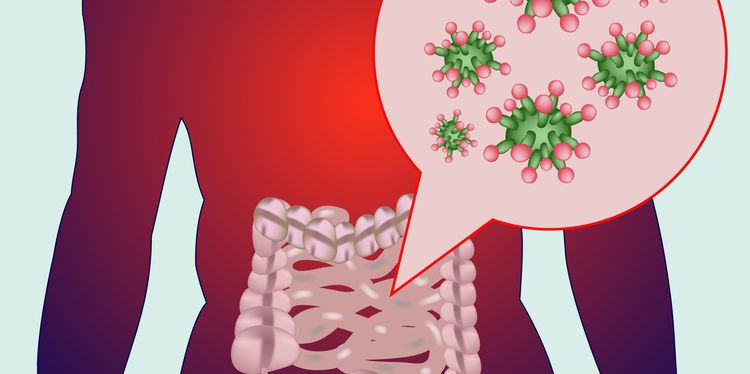
Dr. Alessio Fasano, MD, the director of the Center for Celiac Research & Treatment at Massachusetts General Hospital for Children, has spent decades researching autoimmunity and how the immune system malfunctions, which led him to deduce that every autoimmune disease has three basic ingredients: a genetic predisposition, an environmental trigger, and a leaky gut.8,14
He explains that identifying the first two components was easy, since science has long known that AI conditions tend to run in families and that they can be triggered by infections, but the leaky gut component wasn’t identified until 2000, when he and his research team isolated the protein responsible for regulating gut barrier function, zonulin.14
Leaky gut, or increased intestinal permeability, arises when gut barrier function is compromised, allowing large particles that don’t normally enter the bloodstream to pass through. These particles are then triggers, causing the immune system to respond.
The environmental triggers are food sensitivities, allergens, toxins, and stress, which turn on the genes that initiate the AI process. This also generates chronic inflammation that perpetuates leaky gut and immune system activation.
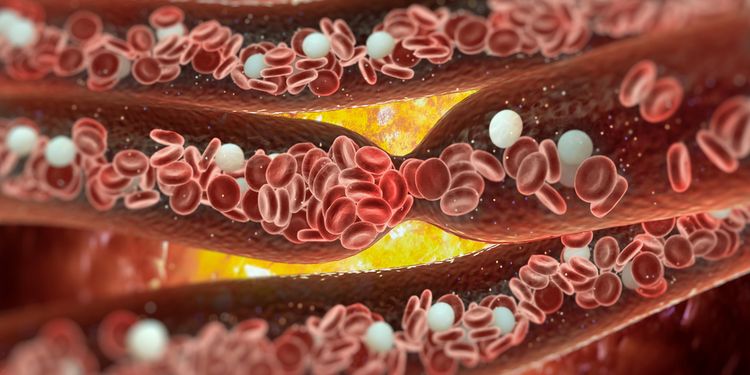
Once the environmental triggers have entered the bloodstream, the immune system becomes primed and ready to defend, launching a biochemical war.
This war creates inflammation that activates certain genes, sustaining the immune response and allowing it to continue. As the war rages on and the immune system is on high alert, some confusion may arise, and the body may begin to attack itself.
One of the mechanisms believed to fool the immune system into thinking your body’s cells are pathogens is molecular mimicry. Molecular mimicry arises because there are specific protein sequences, or antigens, on the surface of certain microbial cells or foods that are similar to certain body cells such as the thyroid, intestinal cells, or nerves, essentially tricking the immune system. It loses its ability to clearly discern between self and non-self.
According to the ‘Thyroid Pharmacist’ Dr. Izabella Wentz, “This inadvertently causes a cross-reaction with our ‘self’ antigens, i.e., our own cells. This case of mistaken identity is thought to trigger the start of autoimmunity.”4
Similarly, another mechanism of autoimmunity occurs when toxins alter DNA and cause gene mutations. These mutations change the structure of tissues, causing the immune system to identify them as foreign and producing an assault on your body.
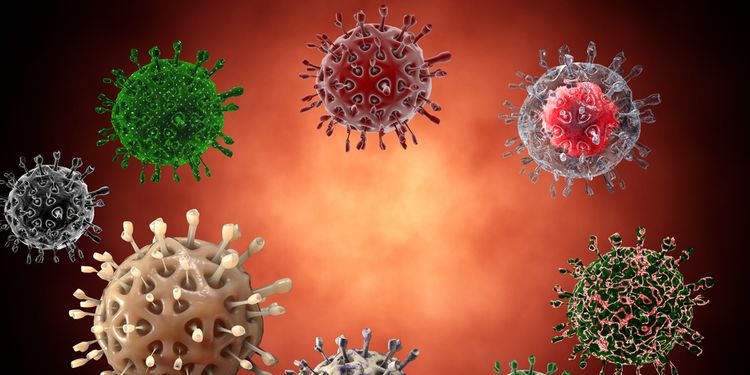
Triggers of Autoimmunity
The triggers that produce autoimmunity often occur together with the immune system responding to multiple ‘insults’ at the same time, since chronic inflammation mediates this process. Identifying the triggers and eliminating them is the key to reversing inflammation, calming the immune system, and shutting down the AI process. Common triggers of autoimmunity are:
- Leaky gut
- Dysbiosis and infection
- Food sensitivity
- Toxins
- Stress
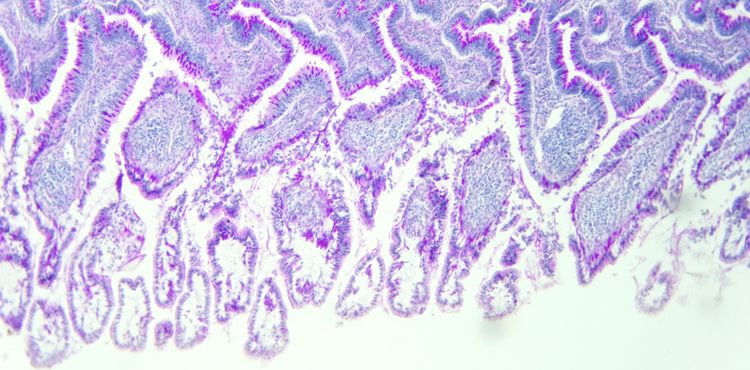
Trigger of Autoimmunity: Leaky Gut
Intestinal hyperpermeability, or leaky gut, starts when a trigger such as toxins, dysbiosis, stress, or food sensitivity creates inflammation, causing a dysfunction in zonulin, which regulates gut barrier function.
Fasano states, “Zonulin works like the traffic cop of our bodies’ tissues. It opens the spaces between cells, allowing some substances to pass through while keeping harmful substances out.” 6,8
Intestinal hyperpermeability occurs when there’s a breakdown in the function of zonulin, allowing larger particles such as bacteria, toxins, and partially-digested food particles through the intestinal walls to the bloodstream, where the immune system generates a reaction to clear them out. In genetically-susceptible individuals, these substances can eventually elicit an exaggerated or erroneous response, and the body can begin to assault its own tissue.
Leaky gut provides an easy access gateway to the immune system, when normally these particles would be kept out of the bloodstream. Under normal circumstances, when you encounter a typical foreign invader, such as a virus, bacteria, parasite, fungus (mold and yeast), or toxin, your immune system should answer by generating a response to anything it perceives to be a threat to your survival. In the case of autoimmunity, these large particles that have entered the bloodstream through a leaky gut cause an immune response that produces antibodies to the particles themselves and to the tissues of your body.
The causes of leaky gut must be eliminated and intestinal barrier function properly restored in order to reverse autoimmunity.
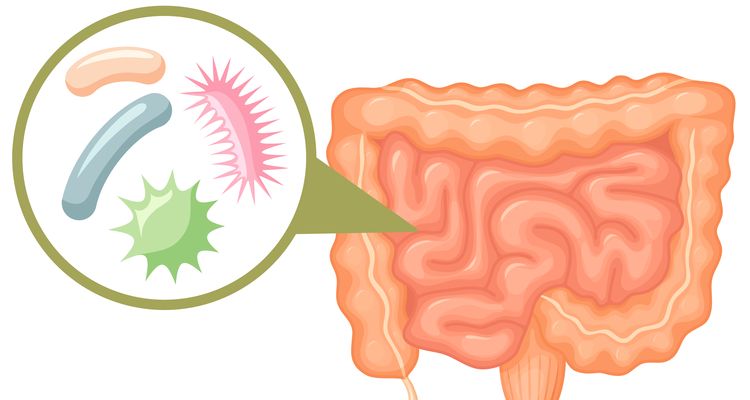
Trigger of Autoimmunity: Dysbiosis and Infection
Dysbiosis is the product of an imbalance between the beneficial and harmful organisms in your body, especially the gut. Healthy individuals have lots of the good guys within the GI tract that assist with digesting food, producing nutrients, and protecting from harmful organisms and inflammation.
When there’s a general imbalance between the good and bad flora, or when there’s an infection present, such as SIBO (small intestinal bacterial overgrowth), Candida (yeast), parasites, or mold, dysbiosis will arise. This imbalance allows for leaky gut to occur, since chronic inflammation develops as a byproduct, and it contributes to the deterioration of the intestinal barrier.
Native (commensal) and infectious organisms, like large particles leaked from the gut, can also trigger autoimmunity through molecular mimicry. Your body mounts an immune response, which is great when it zeroes in on a cold virus that shouldn’t be there, but it’s a problem when it mistakenly assaults your thyroid while it’s attacking H. pylori.4
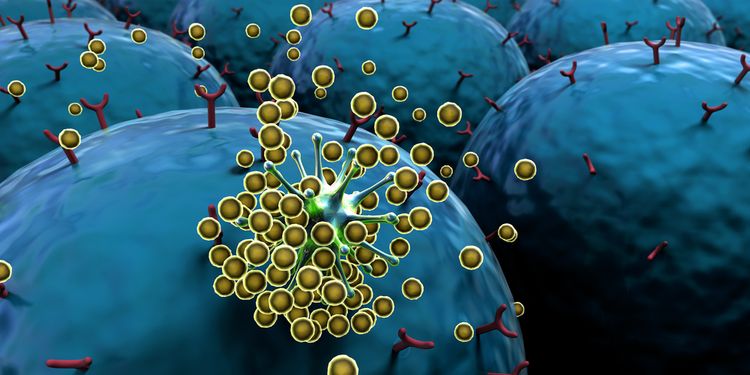
There are many organisms implicated in the molecular mimicry process of autoimmunity, such as H. pylori (causes stomach ulcers and GI infections), Yersinia enterocolitica (causes GI infections), and Borrelia burgdorferi (causes Lyme disease), which may trigger Hashimoto’s thyroiditis.4
When the immune system sees Klebsiella pneumoniae, Shigella, Chlamydia trachomatis, and several other gram-negative bacteria, it ‘recognizes’ the self protein HLA B27 and attacks, inducing spondyloarthropathies, which are inflammatory conditions that include ankylosing spondylitis, psoriatic arthritis, and reactive arthritis (Reiter’s Syndrome).5 Viruses can also be triggers, as with multiple sclerosis and lupus, as well as the Epstein-Barr virus (EBV).5
Many other AI conditions can have a molecular mimicry component as well.
If you have an AI condition, it’s worth investigating to see if you have dysbiosis or an infection that may be perpetuating the process.

Trigger of Autoimmunity: Food Sensitivities
Food sensitivities are very common in those with autoimmunity. The usual suspects are gluten, dairy, eggs, nuts, soy, and corn, although you can have a reaction to any food you eat, especially those you consume frequently. Lectins, which are proteins found in legumes and grains, also activate the immune system and are implicated in autoimmunity.
These sensitivities generally arise when the partially-digested food particles enter the bloodstream through a leaky gut. Additionally, under the right circumstances, a cross-reactive process may ensue as well.
In another case of mistaken identity, foods produce a cross-reactive response through the same antigen-antibody-mediated process that the microorganisms produce.
According to PhD scientist Sarah Ballantyne, aka The Paleo Mom, “For those 20% of us with Celiac disease or gluten-intolerance/sensitivity (whether diagnosed or not), it’s critical to understand the concept of gluten cross-reactivity. Essentially, when your body creates antibodies against gluten, those same antibodies also recognize proteins in other foods. When you eat those foods, even though they don’t contain gluten, your body reacts as though they do. You can do a fantastic job of remaining completely gluten-free but still suffer all of the symptoms of gluten consumption—because your body still thinks you’re eating gluten.”7
Gluten is one of the most sensitizing substances we consume, and eating the cross-reactive foods can be just as bad, since they elicit the same response. Common cross-reactive foods are rye, barley, spelt, Polish wheat, oats, buckwheat, millet, sorghum, amaranth, quinoa, corn, rice, potato, hemp, soy, teff, milk, chocolate, yeast, coffee, sesame, tapioca, and eggs.7
When you have an autoimmune condition, you’re best served by eliminating gluten completely and any cross-reactives that are triggers for you. There’s no middle ground here—it’s all or nothing, because even one little bite will provoke a potentially hazardous flare-up.

Trigger of Autoimmunity: Toxins
When it comes to autoimmunity, you need to be concerned with the toxins inside and outside the body.
Toxins are all around us in the air, water, soil, and our food supply. We’re exposed to astounding amounts of pollution. Over 80,000 chemicals have been introduced into our society since 1900, and only 550 have been tested for safety.9
Dr. Donna Nakazawa, MD and author of The Autoimmune Epidemic, calls these environmental toxins “autogens,” since they create a reaction against the self.9
The toxins we take in can alter our DNA, producing gene mutations that change tissues. The immune system can attack these tissues since they’re not identical to your healthy tissues. Furthermore, the toxins can alter gene expression by turning on genes that promote inflammation, which can then produce autoimmunity and leaky gut. These are some of the more common toxins:
Heavy metals: Mercury, lead, cadmium, bismuth, arsenic, tin, and aluminum
Plastics: BPA, BPS, BPF, and phthalates
Food: Pesticides, herbicides, BT toxin (from GMOs), preservatives, additives, colorings, Teflon (non-stick cookware), and aflatoxins on peanuts and grains
Environmental chemicals: Chlorine, fluoride, bromine, xylene, dioxin, toluene, and PCBs
The organisms that normally reside within us, as well as the pathogenic invaders, can also produce toxins. Mold produces mycotoxins. Bacteria have two toxic mechanisms—the excretion of toxins called exotoxins and the endotoxins on the cell membrane of gram-negative bacteria. These toxins activate the immune system and produce inflammation.

Trigger of Autoimmunity: Stress
Chronic stress has many negative impacts on health, especially with regard to autoimmunity.
Chronic stress produces constant activation of the sympathetic nervous system (fight or flight) and increases levels of the stress hormone cortisol. Over time, constant cortisol elevation leads to cortisol resistance, where the body has to produce more and more to achieve the same response. When this happens for prolonged periods of time, cortisol levels become chronically low, and adrenal fatigue develops. Cortisol is the primary anti-inflammatory hormone in your body, and when levels are chronically low, low-grade inflammation rages, paving the way for autoimmunity.
Additionally, chronic stress alters immune function over time, causing some aspects to be amplified and others to be diminished, producing dysregulation.

A 2009 study on autoimmunity revealed that “most interestingly, the release of endogenous glucocorticoids [cortisol] is critical in regulating the severity of disease activity in patients with inflammatory conditions such as rheumatoid arthritis (RA). Blocking of cortisol production results in a flare-up in disease activity in RA patients, while surgical removal of the adrenals in patients with Cushing’s disease has been reported to exacerbate autoimmune disease.” This clearly illustrates cortisol’s critical role in immune function and inflammation.10
Chronic stress produces physiological changes such as decreased blood flow, oxygenation, motility, enzyme output, and nutrient absorption that directly impact the intestinal flora and gut function.11 Since 70-80% of the immune system is within the gut, this means decreased gut and immune function, which can impact autoimmunity. Further, stress diminishes immunity by depleting the antibody secretory IgA (sIgA) as well as essential hormones, and it promotes inflammation, which can all result in a leaky gut.12

Symptoms of Autoimmunity
Autoimmune conditions are characterized by a myriad of symptoms that can be vague and varied, waxing and waning, making diagnosis difficult. Inflammation, being central in the AI process, is the root of many of these symptoms.
Immune: Allergies, asthma, chronic or recurrent infections that won’t resolve, or yeast infections
Skin/hair/nails: Dermatitis, eczema, acne, rashes, scaly skin patches, hives, photosensitivity (sun sensitivity), hair loss, nail pitting, or dry eyes, skin, and mouth
Gastrointestinal: Food sensitivities, food allergies, stomach pain, GERD (acid reflux), IBS, gas, bloating, diarrhea, constipation, or gastroparesis (delayed stomach emptying)
Brain and mood: Headaches, brain fog, inability to focus or concentrate, double vision, blurred vision, poor memory, depression, anxiety, irritability, fatigue, lethargy, dementia, or insomnia
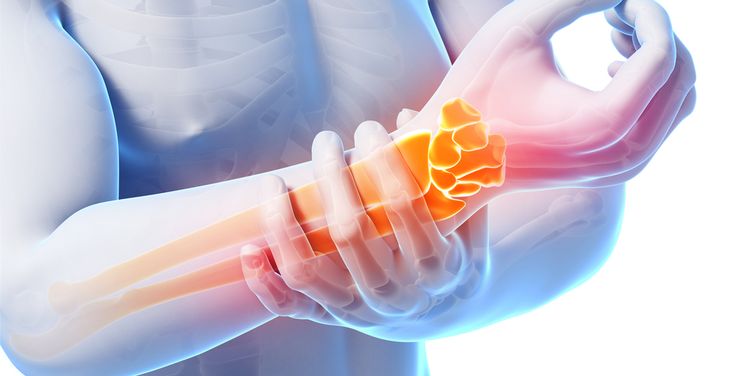
Nerves: Tingling, pins and needles, numbness, or paresthesia
Hormones: Poor blood sugar regulation (high or low blood sugar), weight gain or loss, cold intolerance, imbalanced female and male hormone systems, poor sleep quality, thyroid imbalances, adrenal imbalances, or multiple miscarriages
Cardiovascular: Palpitations, hypertension (high blood pressure), high cholesterol, anemia, or blood clots
Musculoskeletal: Joint and muscle pain, muscle weakness, or fibromyalgia
Liver: Poor detoxification, elevated liver enzymes, or chemical sensitivity
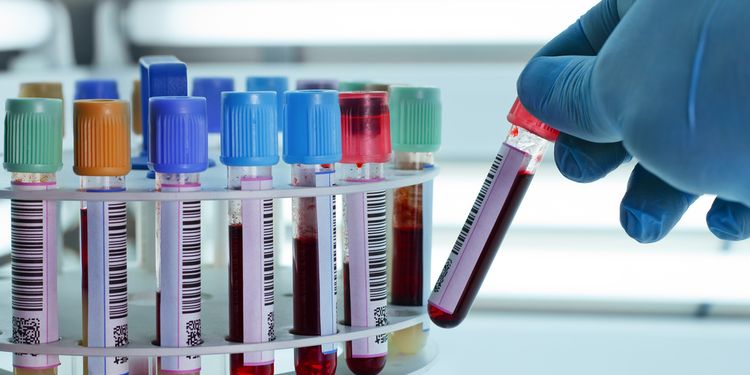
Lab Testing for Autoimmunity
Lab testing for autoimmunity can be exhausting and broad, since there are so many options. It’s best to start with the basics first and consider general blood tests.
General AI Tests:
ANA (anti-nuclear antibody)
ESR (erythrocyte sedimentation rate)
CBC (complete blood count)
CRP (C-reactive protein)
APA (antiphospholipid antibodies)
RF (rheumatoid factor)
GI Infections:
Stool analysis (general)
CDSA (comprehensive digestive stool analysis—looks at organisms, inflammation, and leaky gut)

Food Sensitivities/Allergies:
IgE test for allergies
IgG or IgA test for sensitivities/intolerance
Mediator release testing
Once you’ve pursued these avenues, testing for specific conditions may be in order, such as TPA (thyroperoxidase antibody) and TGA (thyroglobulin antibody) for Hashimoto’s. Cyrex labs has several tests specifically designed for autoimmunity, food intolerances, and intestinal permeability. The Array 5: Multiple Autoimmune Reactivity Screen tests twenty-four different tissues for AI activity.13

Treatment of Autoimmunity
Treating autoimmunity can be easier than you think. Many people get some level of resolution with lifestyle changes and even further resolution when specific lab testing uncovers hidden infections, toxicity, or low cortisol levels that can be treated.
The easiest way to work your way through treatment is to take a systematic approach so you can more easily see what’s working and what isn’t.
Diet: This is the best place to start, since you’ll need some time to identify which foods you should be avoiding; making permanent dietary changes can yield massive benefits when it comes to autoimmunity.
The first step is to begin a 30-day elimination diet. You can make this basic and eliminate the usual suspects that trigger reactions like gluten, dairy, corn, soy, and nuts, but you’d be better off eliminating known AI triggers as well. These include seeds, eggs, legumes and grains (because of the lectins), and nightshades (all varieties of peppers, potatoes, eggplants, etc). You may even choose to stop eating gluten cross-reactive foods as well if you know you have issues with gluten. After 30 days, you can begin the re-introduction phase to see if you have any reaction to each food.

If you want to jump right into a diet change, Paleo can be a good place to start, since it naturally eliminates many of the AI triggers. The first study ever completed on autoimmunity and the Paleo diet was published in 2014 by Dr. Terry Wahls, MD and author of The Wahls Protocol. Although it was a small study, it illustrated the beneficial effects of adopting a Paleo diet in relation to AI disease—especially a reduction in fatigue.3,15
The Autoimmune Paleo diet takes it one step further and eliminates all food triggers of AI. Dr. Ballantyne has the Paleo Approach, and Dr. Datis Kharrazian both have versions of this that are great resources. Dr. Kharrazian’s AI diet focuses on gut healing and is a simple version that includes many meats, vegetables, fermented foods, coconut, certain herbs and spices, low glycemic fruit, and some condiments.16

With all of the diet information out there, knowing what to eat can be very confusing, but with some work you can do it. As with any diet, you need to tailor it to your own specific biochemical needs. This means that some of the foods on the “avoid” list might be okay for you, and some acceptable foods may not be.
You need to figure this out to optimize your diet and health. Find your “you” diet.
Nutrients and Supplements: There are so many different nutrients necessary for treating autoimmunity and inflammation. The following are some examples of anti-inflammatory and gut-healing nutrients you can start with:
Magnesium, vitamin D, and EPA/DHA (omega-3 fatty acids) are recommended by Sarah Ballantyne for their important anti-inflammatory and immune-modulating effects.3,17
Vitamins C and E, zinc, and selenium function as antioxidants and protect against oxidative stress.17
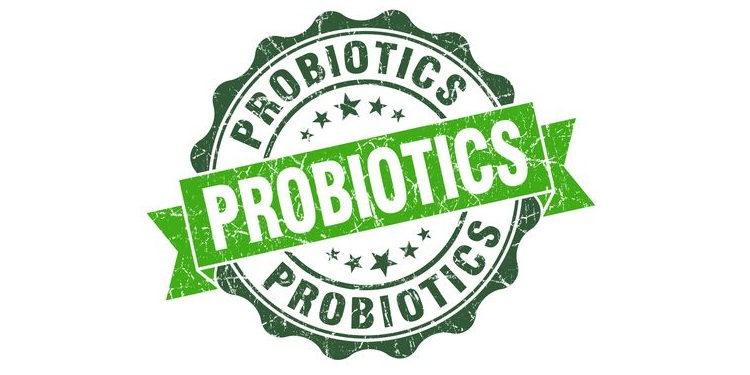
Glutathione is a critical nutrient, as it’s the master antioxidant in the body, and there’s a significant breakdown with its function in AI. Taking supplemental glutathione (or its precursor, NAC (n-acetyl cysteine)) with alpha lipoic acid (ALA) and glutamine will help recycle glutathione efficiently. ALA also functions as an antioxidant and supports healthy mitochondrial function. Glutamine is an essential nutrient for intestinal cells and helps repair leaky gut (along with glutathione).18
Probiotics (“good bacteria”) increase the levels of healthy bacteria in your gut, which reduces inflammation and combats leaky gut.17
Digestive enzymes and betaine HCL are often necessary, since nutrient malabsorption plays a role in leaky gut and AI.17

Clean up your life: Eat organic foods, avoid GMOs, and choose more natural cleaning and personal care products to reduce the toxic burden on your body.
Reduce your stress levels: Stress is one of the main contributors to inflammation and poor immune function. Identify and manage your stressors. Reduce stress by creating boundaries, honoring your feelings, and organizing your life.
Relax: Take time-outs during the day to unplug and rest. Schedule downtime to give your body a rest by journaling, yoga, or meditation. Do what speaks to you.
Get into nature: Nature has significant healing benefits, so try to get out and enjoy it at least once per week.

Sleep: Getting adequate sleep is essential to healing. Avoid blue light stimulation from TVs, phones, and tablets for at least 2 hours before bed. Aim for a minimum of 8 to 9 hours per night, and try to get to bed by 10 PM. Sleep in a dark, cool, and quiet room for the most restful results.
Exercise: Moving your body is important to maintaining health and the healing process, but know your limits. Pushing too hard or too fast can delay your recovery. Give yourself adequate rest time, and only do what your body is telling you it can handle. In general, long-duration endurance exercises deplete cortisol and promote inflammation, so it may be best to avoid this and opt for walking, hiking, yoga, pilates, or weight lifting.
Empower yourself: Knowledge is power, so educating yourself on your condition makes you your best advocate. This knowledge will equip you with the best opportunity to manage your AI condition to give you the best quality of life.
